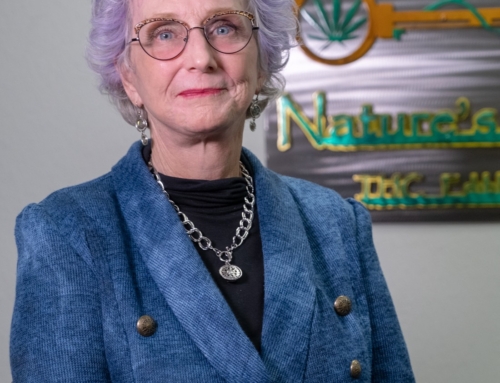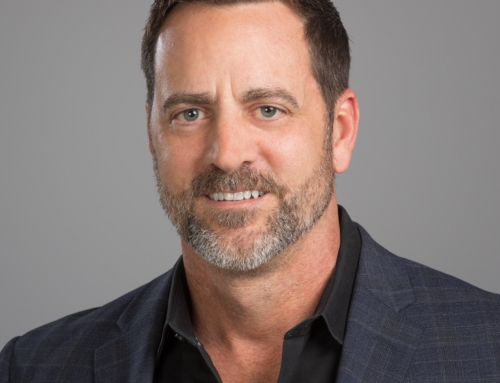As a part of my series about strong women leaders in the cannabis industry, I had the pleasure of interviewing Tammy Camp. Tammy is the Chief Executive Officer of Stronghold, a financial technology platform that enables real-time payments, foreign exchange and cross-border clearing and settlement leveraging next-generation financial infrastructure delivered via APIs. Tammy served as the first Head of Growth at Stellar, helping the network grow to 4 million users in its first two months. A former partner at accelerator 500 Startups, she invested in portfolio companies and ran the growth and marketing curriculum for its flagship Silicon Valley location. She is a graduate of Singularity University’s GSP11 in Exponential Technologies at NASA Ames where she first learned about Bitcoin from legendary cryptographer Ralph Merkle. Tammy is using her experience and networks, as well as the technology Stronghold is developing, to innovate the way payments are made in the cannabis sector. With mobile and web app developments in progress for merchants in multiple states, Tammy and Stronghold are making payments for cannabis easier and faster.
Thank you so much for doing this with us! Can you tell us the “backstory” about what brought you to the cannabis industry?
At Stronghold we serve underserved businesses, starting in 2017 with money service businesses and blockchain companies. Given our core strength is regulatory technology and compliance with payments, cannabis seemed like a natural fit for us. Today cannabis businesses are underserved — as many as 70% of cannabis companies are still unbanked and don’t have financial services.
Can you share the most interesting story that happened to you since you began leading your company? Can you tell us what lesson you learned from that?
In Stronghold’s last investment round 75% of the investors were either women or minorities. That is unheard of when it comes to venture investment and is inspiring. People are beginning to realize that only a small percentage of venture capital goes to women and as such many are making great strides to change it.
Can you share a story about the funniest mistake you made when you were first starting? Can you tell us what lesson you learned from that?
Personally, I find it funny that when a bank is really motivated to move forward with this space as the way they move is still slow to a technology company’s standards. With the resources banks have, I made the mistake of thinking a bank could get something done “quickly” — me foolishly thinking “two weeks” when in reality they meant 12 months!
Do you have a funny story about how someone you knew reacted when they first heard you were getting into the cannabis industry?
People’s eyes tend to glaze over when you talk about payments, but when you start talking about cannabis they open them pretty quickly! I know our New Zealand employees have family and friends that are shocked when they start discussing their work on cannabis payments as it is not legal for personal use there. In New Zealand cannabis is only legal for terminally ill patients who are able to lawfully consume cannabis for medicinal purposes, however in 2020 a non-binding referendum will be held at the 2020 New Zealand general election on the question of whether to legalize the personal use of cannabis.
None of us are able to achieve success without some help along the way. Is there a particular person who you are grateful towards who helped get you to where you are? Can you share a story?
There are so many people that helped me along my journey and to make Stronghold what it is. One of our investors is active in the banking space and his inside knowledge of payment systems has helped us navigate many meetings with banks and credit unions. Although we understand the technical side and have good networks in this area, his knowledge of the traditional banking system has been invaluable.
Are you working on any new or exciting projects now? How do you think that will help people?
At the moment we are focused on making retail payments for cannabis easier but the vision is to actually go all the way up the supply chain and have a payments network that connects merchants, distributors, growers, and financial institutions. Getting cash off the streets and enabling digital payments makes our communities safer.
Ok. Thank you for all that. Let’s now jump to the main core of our interview. Despite great progress that has been made we still have a lot more work to do to achieve gender parity in this industry. According to this report in Entrepreneur, less than 25 percent of cannabis businesses are run by women. In your opinion or experience, what 3 things can be done by a)individuals b)companies and/or c) society to support greater gender parity moving forward?
I find this very interesting as while less than 25% of cannabis businesses are run by women, that is far greater than in the fintech sector which Stronghold also works in. Separately, we have found that over 80% of all cannabis bankers are women which is absolutely astounding. They are also incredibly good at what they do.
Since birth there is an unconscious bias pre-programmed into us through all of the content we are given, for example some Disney movies. Personally I don’t let my daughters watch Disney movies where the girl is rescued by a prince which demonstrates a standard that rarely exists in modern-day times. Instead we encourage content and tools that speaks to girls having more confidence, STEM and self reliance themes. Becoming more self aware as a society would help evolve in this direction and change as a whole so we can be aware and taper down our unconscious bias.
You are a “Cannabis Insider”. If you had to advise someone about 5 non intuitive things one should know to succeed in the cannabis industry, what would you say? Can you please give a story or an example for each.
1. Compliance is everything. Having the relevant licences and registrations are table stakes in this sector. You simply have to have them and there is no way of getting around it as everything is so heavily regulated. Because of this, getting the relevant licences and regulations should be a first priority for anyone wanting to succeed in the cannabis industry.
2. Political climate matters. I watch legislation in this area more closely than any other vertical we’ve operated in as it changes fast at both state and federal levels.
3. Fragmentation. This problem is very real, as you can do one thing in one state, not the same in another. Getting the states to work together is not easy but would be so helpful to further this industry rather than reinventing the wheel in each state.
4. Basic service providers will turn you down because of the sector you’re in. Accountants, lawyers, and other providers simply won’t take on businesses working in the cannabis sector because of the perceived risk. Don’t give up though, just approach multiple providers, build relationships, and update them on your progress until they are ready to take you on board.
5. Banking. Again, banks and credit unions are concerned with risk but if you can show you have those relevant licences and registrations this helps. It will take at least 5 years for large banks to get on board.
Can you share 3 things that most excite you about the cannabis industry?
1. Innovation spawns from when an industry is forced to think out of the box to solve a problem. I can’t wait to see how this industry looks in 5 and 10 years time.
2. Growth potential. Cannabis can be used for a variety of different things and the market opportunity is very exciting.
3. Changing legislation is happening right before our very eyes. It’s a historical time for us all.
Can you share 3 things that most concern you about the industry? If you had the ability to implement 3 ways to reform or improve the industry, what would you suggest?
I’m most concerned about:
1. Investing is slowing down a lot due to regulatory uncertainty. Without this investment the industry cannot grow.
2. Vaping is new and there isn’t historical data on the long term effects. What I can see is that some vaping companies have good quality controls while others may not. My concern is that everyone is being stroked with a broad brush instead of being reviewed on a case by case basis. Vaping sales are down because of bans and some companies have a meaningful percentage of their revenue from vaping.
3. Layoffs have been happening across the board in the past 6 months, which are all related to the two factors above. The lack of capital and decline in sales means layoffs.
What are your thoughts about federal legalization of cannabis? If you could speak to your Senator, what would be your most persuasive argument regarding why they should or should not pursue federal legalization?
Dear Senator,
We believe federally legalizing cannabis has important opportunities that can benefit the United States. The tax revenue generated by the growing, processing and selling of cannabis that would otherwise sustain the black market could have great impact in sustaining the United States. Further, federal regulation would make our communities safer by providing financial services as well as safer work environment for hard working Americans.
Today, cigarettes are legal, but they are heavily regulated, highly taxed, and they are somewhat socially marginalized. Would you like cannabis to have a similar status to cigarettes or different? Can you explain?
I think cannabis will be heavily regulated and I do understand why — so it won’t be abused. There are many ways to do this in a positive way though such concepts like cannabis bars. However even if cannabis was sold like cigarettes this would be fine as all of the retailers that sell cigarettes could conduct age verification, just like they currently do for cigarettes.
Can you please give us your favorite “Life Lesson Quote”? Can you share how that was relevant to you in your life?
“Be who you are and say what you feel, because those who mind don’t matter and those who matter don’t mind” by Dr Seuss.
The cannabis sector is very polarising as some people don’t fundamentally believe in cannabis, but you need to keep going. In particular if you’re a female entrepreneur you need to be tough and have thick skin.
You are a person of great influence. If you could inspire a movement that would bring the most amount of good to the greatest amount of people, what would that be? You never know what your idea can trigger. 🙂
I would want to inspire a movement to encourage people to be more self aware. People don’t often have a conscious knowledge of their own character and feelings and if they did the world would be a much better place.
Thank you so much for the time you spent with this. We wish you only continued success!










![“The potential to help people [in this industry] is enormous, but there’s still so much to learn.” – Ramon Alarcon, Witi](https://cf.lakesideremedy.com/wp-content/uploads/2020/12/1thj5ekUyxQ69iLz1JJyODg-scaled-e1607882756286-500x383.jpeg)
